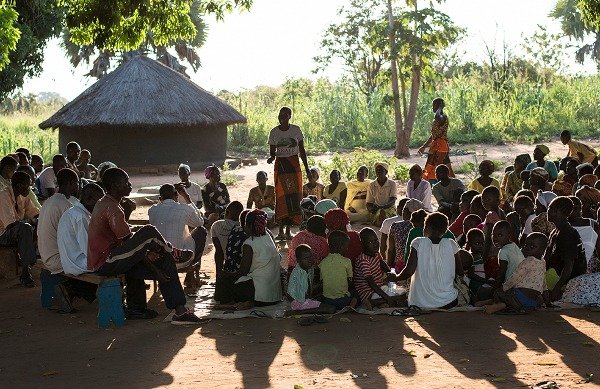Establishing Essential Sexual Health Groups via Kenyan Clinics
In Kenya 3 out of 20 teenagers will become pregnant. They want to avoid pregnancy but lack the knowledge and ability to make informed decisions.
Alongside our partners, Women and Children First is establishing new groups to support adolescent girls with knowledge and skills to improve their sexual and reproductive health.
The challenges for women and girls
Teenage girls and young women face sizeable barriers to the health care and information they need.
This is due to a lack of comprehensive sexual education in schools, mixed with difficult socio-economic circumstances and previous poor quality health services.
This disempowers them, damaging their education, career, and future prospects.
Adolescent girls are at higher risk of dangers during pregnancy and childbirth, such as eclampsia – high blood pressure resulting in seizures.
63% of 15-19-year-olds and 47% of 20–24-year-olds are not using any contraception.
Access to contraception for teenagers reduces the risk of unintended pregnancies and them missing out on their school education. Attending just one year of secondary education can boost a girl’s future earning potential by up to 25%.
Women and Children First is partnering with Afya Research Africa to trial whether community groups run via their clinics can empower girls to improve their sexual and reproductive health.
How this can work
In close collaboration with our partners and local stakeholders the charity adapted our methodology specifically to suit adolescent girls and young women.
Women and Children First will train the Afya team in how to run community groups. They will in turn train group leaders and other key stakeholders to run effective, high impact meetings.
The teenagers and young women will critically assess the problems they face, and work together in a team to solve them. With the help of the wider community, they will implement these solutions.
The creation of adolescent health groups will provide a safe space for adolescents to discuss their concerns and barriers, including lack of knowledge, social norms and values, and stigma.
Topics covered will include: STIs; HIV/AIDS; cervical cancer; maternal health issues and the importance of using family planning methods and health services.
What will be the impact?
Over the course of the project, 10 community health groups will be established, reaching hundreds of adolescent girls and young women in 2023 and 2024.
This initiative has the potential to provide long-lasting benefits to the communities for years to come.
Afya Research Africa set up medical centres in rural communities where there is a lack of healthcare options. These centres are co-owned by the partner communities to help ensure the services they provide are relevant and trusted.
Each centre aims to serve 30,000 people. Two thirds of patients are women and children. As Afya’s centres are permanently based in the communities, the training and tools that will be received as part of this project can be used beyond the scope of the project, as a regular tool empowering communities to address the health challenges they face.
Pioneering and developing these projects is only possible thanks to the kindness and generosity of our supporters. Thank you for enabling us to support women and girls.

